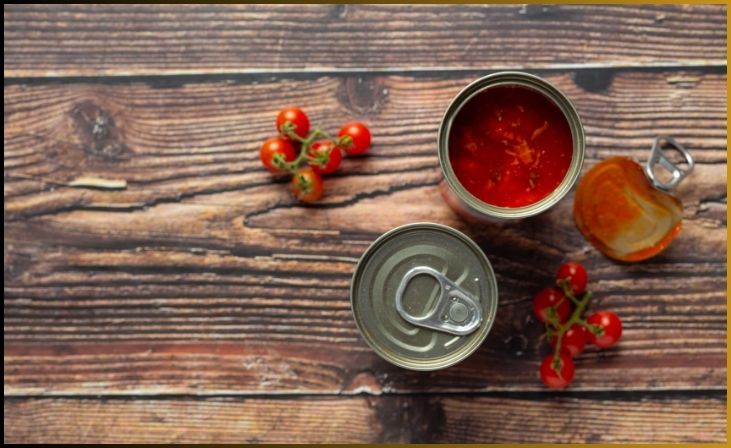In today’s fast-paced world, convenience often leads us to rely on canned foods for quick and easy meals. While canned foods can be a convenient option, it’s important to be aware of their potential health implications, especially as we prioritize our well-being. In this blog post, we will explore the world’s unhealthiest canned foods and what to watch out for when making food choices. From high sodium content to added sugars and unhealthy fats, certain canned foods can contribute to various health issues if consumed in excess. By understanding the potential risks associated with these foods, we can make informed decisions and prioritize healthier alternatives to support our overall health and well-being.
It’s important to note that moderation is key, and occasional consumption of these foods may not have significant health consequences. However, being mindful of their nutritional content and opting for fresher, whole-food options whenever possible can contribute to a healthier lifestyle.
Unhealthiest Canned Foods You Should Avoid
Canned foods offer convenience and long shelf lives, but not all canned products are created equal when it comes to health. While some canned items can be nutritious and convenient, there are others that may contain high levels of sodium, unhealthy fats, added sugars, and artificial additives. In this article, we’ll explore some of the world’s unhealthiest canned foods and what to watch out for when making food choices.
1. Canned Soups

Canned soups, particularly condensed ones, can pose health concerns due to their elevated sodium levels. These sodium-rich options may contribute to issues like hypertension and cardiovascular problems. Additionally, manufacturers often include preservatives and artificial flavors to enhance taste and prolong shelf life, adding potential health risks. It’s imperative to read labels diligently, opting for low-sodium or no-salt-added varieties. Consider exploring homemade soup options using fresh ingredients to have better control over the nutritional content. Prioritizing awareness and informed choices ensures that the convenience of canned soups doesn’t compromise overall health.
2. Canned Spaghetti and Meatballs

Canned spaghetti and meatballs, while convenient, can harbor hidden health pitfalls. Many commercial varieties contain added sugars, contributing to excess calorie intake and potential health issues. The high salt content in these canned options may also elevate sodium levels, impacting cardiovascular health. Moreover, the meatballs often comprise processed meats with additives, diminishing the nutritional value compared to homemade alternatives. Opting for whole-grain pasta and leaner, homemade meatballs allows for healthier and more controlled meal preparation. Prioritizing fresh ingredients over canned versions helps mitigate the risks associated with hidden sugars, salt, and unhealthy fats, promoting a more nutritious diet.
3. Canned Ravioli

Canned ravioli, often perceived as a quick meal solution, can carry health concerns. The convenience comes at the cost of potential excess sodium, unhealthy fats, and artificial additives. These additives can compromise nutritional value and may not align with dietary goals. The accompanying sauce might contain added sugars, contributing to caloric intake and affecting overall diet balance. Opting for homemade or carefully selected, lower-sodium canned alternatives allows for better control over nutritional content. Reading labels and choosing options with minimal additives supports a more health-conscious approach to enjoying ravioli without sacrificing dietary considerations.
4. Canned Luncheon Meats

Canned luncheon meats, exemplified by products like Spam or corned beef, often carry a reputation for health concerns. These meats are known for their elevated sodium levels, unhealthy fats, and potential preservatives. Excessive sodium intake can contribute to various health issues, emphasizing the importance of choosing leaner protein sources. Opting for fresh, unprocessed meats allows for better control over nutritional content, promoting a healthier dietary balance.
Read labels carefully to make informed choices, prioritizing options with lower sodium content and minimal additives. This approach aligns with overall well-being, helping to avoid the potential drawbacks associated with canned luncheon meats.
Also Check: 7 Delicious Asian Foods for 2023
5. Canned Chili

Certain canned chili products may appear convenient, but it’s crucial to be aware of their nutritional content. Some varieties can be high in sodium, added sugars, and unhealthy fats, potentially compromising the health benefits of chili. Particularly, those containing processed meats should be approached with caution, as they can contribute to an overall less-than-ideal nutritional profile. Reading labels diligently allows consumers to make informed choices, prioritizing options with lower sodium and minimal additives.
Choosing homemade or healthier versions can offer the robust flavors of chili without the drawbacks associated with certain canned varieties. This approach aligns with maintaining a balanced and nutritious diet while enjoying the heartiness of chili.
6. Canned Cheeses

Canned cheese spreads and processed cheese products, while convenient, often come with nutritional drawbacks. High levels of sodium, unhealthy fats, and artificial additives can compromise the health of these products. For individuals prioritizing a nutrient-dense diet, these cheese options may not be the best choice. Reading labels is crucial to understanding the nutritional content and making informed decisions about food consumption.
Opting for natural cheese or exploring healthier alternatives can provide the same creamy goodness without the associated concerns. By being mindful of ingredients and nutritional profiles, individuals can navigate the world of cheese products more health-consciously, ensuring a balance between taste and well-being.
7. Canned Fruit in Syrup

Canned fruits preserved in heavy syrup may tempt with their sweetness, but they often come at the cost of high levels of added sugars. While the syrup enhances flavor, it contributes to an increase in calorie intake without providing significant nutritional benefits. Excessive sugar consumption is linked to various health issues, including weight gain and increased risk of chronic diseases. Choosing canned fruits in natural juices or water can be a healthier alternative, reducing the overall sugar content.
Reading labels and being mindful of added sugars in canned fruits is crucial for those aiming to maintain a balanced and nutritious diet. Opting for fresh fruits when possible can further enhance the nutritional value of one’s diet, ensuring a sweet and healthy approach to snacking.
8. Sweetened Condensed Milk

Sweetened condensed milk is a common ingredient in numerous dessert recipes, prized for its ability to impart sweetness and creaminess. However, it comes with a trade-off, being heavy in both sugar and calories. Although it enhances the flavor and texture of dishes, moderation is crucial to avoid excessive calorie and sugar intake. The high sugar content can contribute to health issues like weight gain and increased risk of chronic diseases.
Those mindful of their dietary sugar and calorie intake may consider exploring alternatives or using sweetened condensed milk sparingly. Careful reading of labels and awareness of nutritional content can empower individuals to make informed choices when incorporating sweetened condensed milk into their culinary creations.
Final Thoughts
In conclusion, while canned foods can offer convenience and long shelf lives, it’s essential to be mindful of the nutritional content of the products you choose. Some canned items, such as soups, pasta dishes, luncheon meats, and sweetened condensed milk, may contain high levels of sodium, unhealthy fats, added sugars, and artificial additives. Reading labels, opting for products with lower sodium content, and choosing whole, minimally processed foods whenever possible are effective strategies to make healthier choices in your diet. Remember that a balanced and varied diet rich in whole foods is the foundation of good health.
FAQs
Look for high levels of sodium, added sugars, and preservatives in the ingredient list. Opt for products with minimal, natural ingredients.
Not necessarily. Choose canned fruits without added sugars and vegetables with no or low sodium options. Better yet, opt for fresh or frozen alternatives.
High sodium intake is linked to various health issues, including hypertension and heart disease. Check labels for low-sodium or no-salt-added options.
Rinse canned vegetables and beans to reduce sodium content. Choose products with no added sugars, and consider preparing fresh alternatives when possible.







